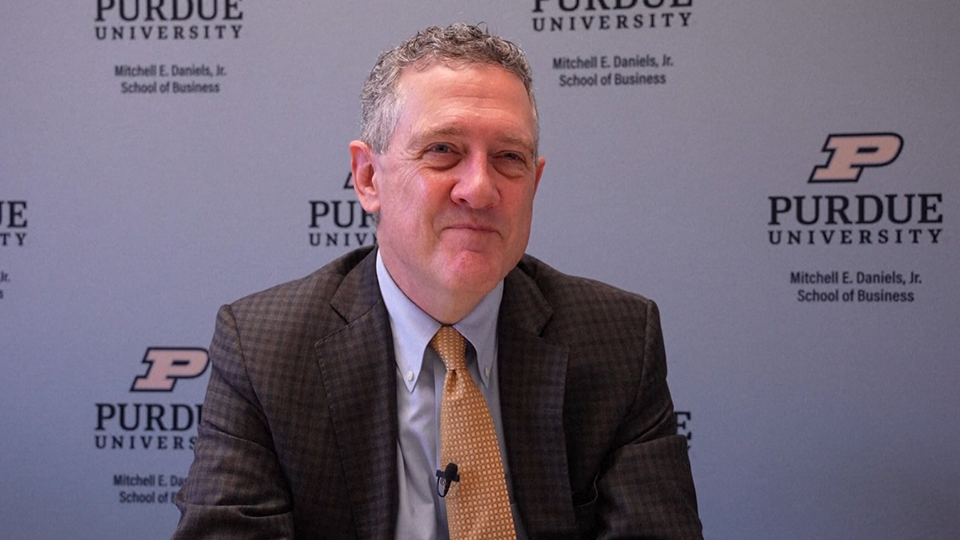Purdue business school dean sees optimism in US economy
Subscriber Benefit
As a subscriber you can listen to articles at work, in the car, or while you work out. Subscribe Now
The dean of the Mitchell E. Daniels Jr. School of Business at Purdue University says there is reason for optimism about the economy heading into the winter season.
Jim Bullard, who spent 15 years as president and CEO of the Federal Reserve Bank of St. Louis before coming to Purdue, says labor markets remain strong, which means consumption will likely continue to be very good.
In an interview for the Associated Press, Bullard said it is much more clear now that inflation, while not at the Federal Reserve’s 2% target, is much lower than its previous peak.
“One example of that would be headline CPI inflation, which is one of many measures you could look at, but probably the one that is closest to what people actually have to the the prices that they actually experience,” Bullard said. “Headline CPI inflation on a 12 month basis was over 9%. Now, headline CPI inflation on 12 month basis is just a little over 3%.”
Bullard was named the inaugural Dr. Samuel R. Allen Dean of the Daniels School of Business in July.
He said many on Wall Street and elsewhere around the world expected the U.S. economy to slow down, but the opposite seems to be happening.
The nation’s economy expanded at a robust 4.9% annual rate from July through September, the AP reported Thursday, as Americans defied higher prices, rising interest rates and widespread forecasts of a recession to spend at a brisk pace.
The Commerce Department said the economy expanded last quarter at the fastest pace in nearly two years — and more than twice the 2.1% annual rate of the previous quarter.
“Instead of slowing down, the economy really accelerated, and it’s actually growing faster than it was earlier,” Bullard said. “So this is raising a lot of questions about the hypothesis that the U.S. was about to go into recession.”
Wall Street officials, Bullard said, will need to reassess the view that has been dominant over the last year that the county was headed toward a recession.
“When that doesn’t happen, you have to reprice everything, and that’s what’s been happening in financial markets in the last 10 weeks or so,” he said. “The biggest issue in tracking the U.S. economy right now is that the economy appears to be reaccelerating, instead of slowing down.”
Bullard noted that geopolitical factors such as the ongoing war in Ukraine and the conflict between Israel and Hamas could create more economic uncertainty.
